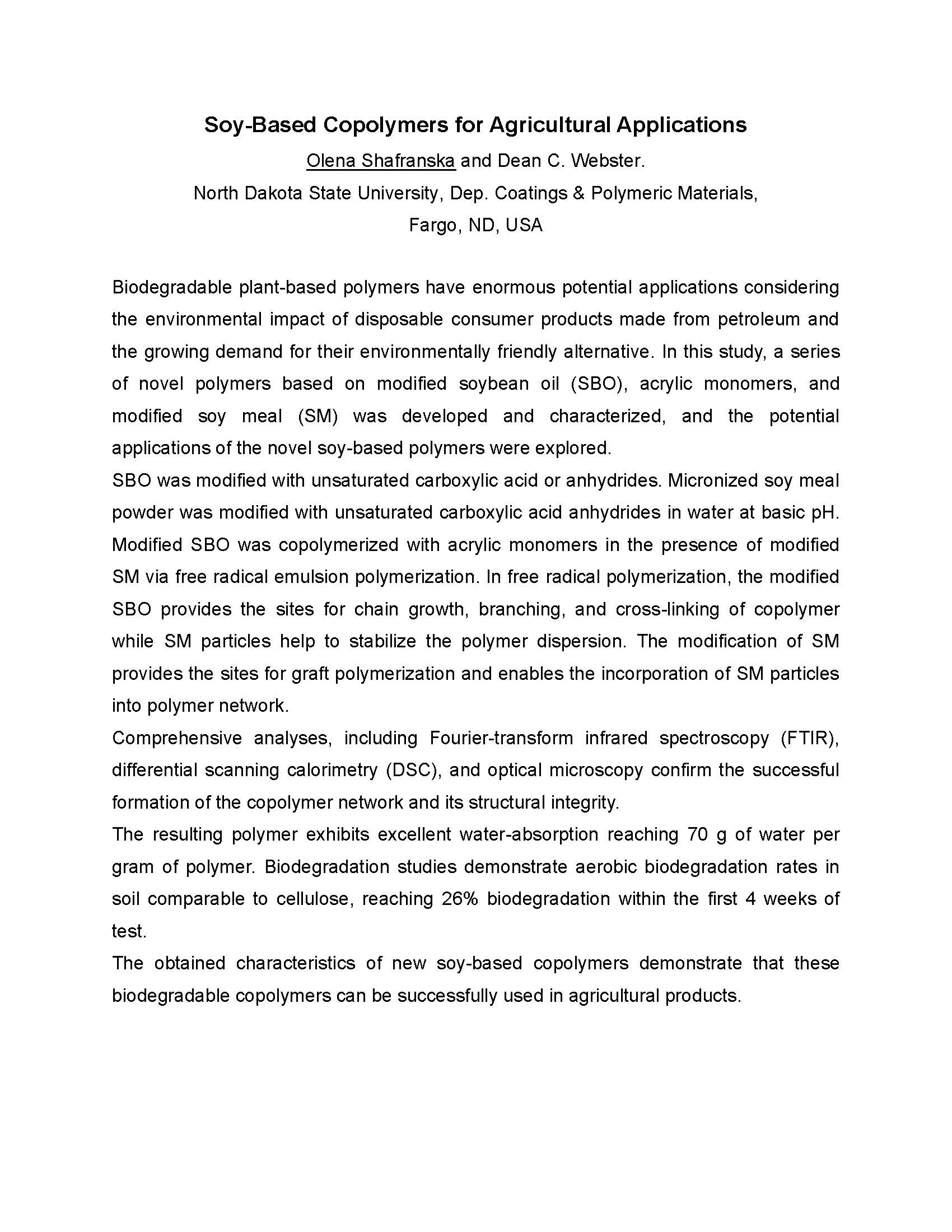Biodegradable plant-based polymers have enormous potential applications considering the environmental impact of disposable consumer products made from petroleum and the growing demand for their environmentally friendly alternative. In this study, a series of novel polymers based on modified soybean oil (SBO), acrylic monomers, and modified soy meal (SM) was developed and characterized, and the potential applications of the novel soy-based polymers were explored.
SBO was modified with unsaturated carboxylic acid or anhydrides. Micronized soy meal powder was modified with unsaturated carboxylic acid anhydrides in water at basic pH. Modified SBO was copolymerized with acrylic monomers in the presence of modified SM via free radical emulsion polymerization. In free radical polymerization, the modified SBO provides the sites for chain growth, branching, and cross-linking of copolymer while SM particles help to stabilize the polymer dispersion. The modification of SM provides the sites for graft polymerization and enables the incorporation of SM particles into polymer network.
Comprehensive analyses, including Fourier-transform infrared spectroscopy (FTIR), differential scanning calorimetry (DSC), and optical microscopy confirm the successful formation of the copolymer network and its structural integrity. The resulting polymer exhibits excellent water-absorption reaching 70 g of water per gram of polymer. Biodegradation studies demonstrate aerobic biodegradation rates in soil comparable to cellulose, reaching 26% biodegradation within the first 4 weeks of test.
The obtained characteristics of new soy-based copolymers demonstrate that these biodegradable copolymers can be successfully used in agricultural products.
